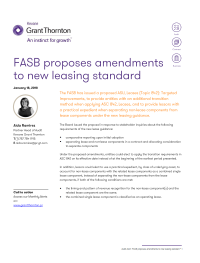-
Financial statements audits
Financial statement audits
-
Compliance audits
Compliance audits
-
Compilations and reviews
Compilations and audit
-
Agreed-upon procedures
Agreed-upon procedures
-
Tax compliance
Business Tax
-
Global mobility services
Through our global organisation of member firms, we support both companies and individuals, providing insightful solutions to minimise the tax burden for both parties.
-
Sales and use tax and indirect taxes
SUT/ VAT & indirect taxes
-
Tax incentives
Navigating the complex landscape of tax incentives in Puerto Rico can be challenging. Whether you're looking to benefit from the Export Services Act (Act 20), the Individual Investors Act (Act 22), or other incentives under Act 60, we provide tailored advice to help you maximize your tax benefits and ensure compliance. Let us help you unlock the potential of doing business in Puerto Rico.
-
Transfer Pricing
The laws surrounding transfer pricing are becoming ever more complex, as tax affairs of multinational companies are facing scrutiny from media, regulators and the public
-
International Business Center
Kevane Grant Thornton is an International Business Center within the Grant Thornton network. Our expert team provides integrated solutions to help Puerto Rico businesses navigate the complex issues that arise when developing global businesses.

-
Business consulting
Our business consulting services can help you improve your operational performance and productivity, adding value throughout your growth life cycle.
-
Business Risk Advisory
Risk is inevitable but manageable. We deliver relevant, timely and practical advices to aid organizations manage risk and improve business performance. We can help you identify, understand and manage potential risks to safeguard your business and comply with regulatory requirements.
-
Technology Advisory
We provide comprehensive solutions to safeguard your business and ensure operational resilience and compliance. Our expert team offers a range of technology advisory services designed to address your cybersecurity needs, enhance business continuity, and manage security effectively.
-
Transactional advisory services
Transactions are significant events in the life of a business – a successful deal that can have a lasting impact on the future shape of the organizations involved. Because the stakes are high for both buyers and sellers, experience, determination and pragmatism are required to bring deals safely through to conclusion.
-
Forensic and investigative services
At Grant Thornton, we have a wealth of knowledge in forensic services and can support you with issues such as dispute resolution, fraud and insurance claims.

The FASB has issued a proposed ASU, Leases (Topic 842): Targeted Improvements, to provide entities with an additional transition method when applying ASC 842, Leases, and to provide lessors with a practical expedient when separating non-lease components from lease components under the new leasing guidance.
The Board issued the proposal in response to stakeholder inquiries about the following requirements of the new lease guidance:
- comparative reporting upon initial adoption
- separating lease and non-lease components in a contract and allocating consideration to separate component
Under the proposed amendments, entities could elect to apply the transition requirements in ASC 842 on its effective date instead of at the beginning of the earliest period presented.
In addition, lessors could elect to use a practical expedient, by class of underlying asset, to account for non-lease components with the related lease components as a combined single lease component, instead of separating the non-lease components from the lease components, if both of the following conditions are met:
- the timing and pattern of revenue recognition for the non-lease component(s) and the related lease component are the same.
- the combined single lease component is classified as an operating lease.
A lessor that elects to apply the practical expedient would be required to disclose this election, as well as the class or classes of underlying assets to which the expedient applies and the nature of the non-lease components included within the single lease component.
The effective date and transition requirements for the proposed amendments would be the same as those for ASC 842.
Comments on the proposal are due February 5.
Source:
Grant Thornton, On the Horizon, January 11, 2018.



